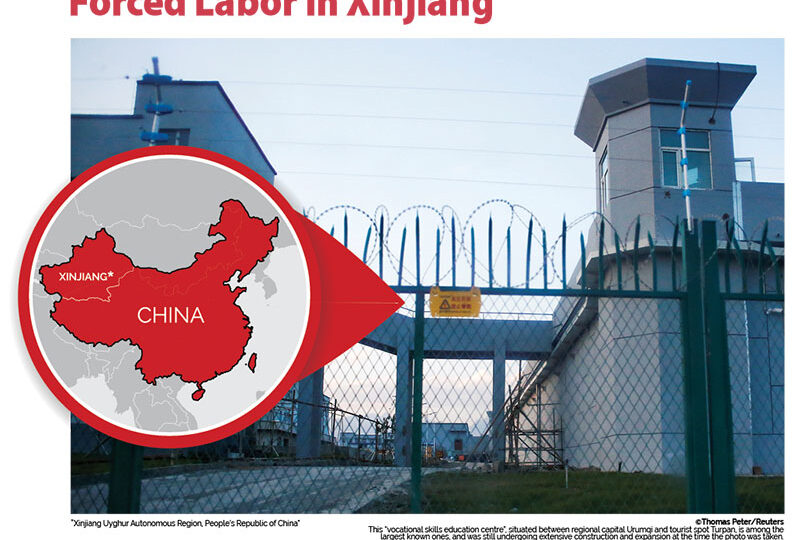Against Their Will: The Situation in Xinjiang
09.18.23
The People’s Republic of China has arbitrarily detained more than one million Uyghurs and other mostly Muslim minorities in China’s far western Xinjiang Uyghur Autonomous Region.

The People’s Republic of China has arbitrarily detained more than one million Uyghurs and other mostly Muslim minorities in China’s far western Xinjiang Uyghur Autonomous Region. (1) It is estimated that 100,000 Uyghurs and other ethnic minority ex-detainees in China may be working in conditions of forced labor following detention in re-education camps. (2) Many more rural poor workers also may experience coercion without detention. (3; 4) China has been included on the List of Goods Produced by Child Labor of Forced Labor (TVPRA List) since 2009. In 2020, the Bureau of International Labor Affairs (ILAB) added five goods produced by forced labor by Muslim minorities in China to the 2020 edition of the TVPRA List. These goods include gloves, hair products, textiles, thread/yarn, and tomato products. In 2021, ILAB added an additional good, Polysilicon, produced by forced labor by Muslim minorities in China.
The production of these goods through forced labor takes place primarily in Xinjiang. (5) While previous research has focused on goods and products produced in Xinjiang, recent external reports indicate that Uyghurs also have been transported to work in other provinces in China, increasing the number of goods potentially made with forced labor and broadening the risk of forced labor in supply chains. (5; 3) Other minorities may be forced to work under the guise of “poverty alleviation” without having been detained. (6) Moreover, the government gives subsidies to companies moving to Xinjiang or employing Muslim minority workers. (2) These practices exacerbate a demand for members of Muslim ethnic minority groups that the government wants placed in work assignments where they can be controlled and watched, as well as receive Mandarin Chinese training and undergo political indoctrination. (2) Once at a work placement, workers are usually subjected to constant surveillance and isolation. Given the vast surveillance state in Xinjiang and the threat of detention, individuals have little choice but to face the difficult situations present in these work assignments. (3)

